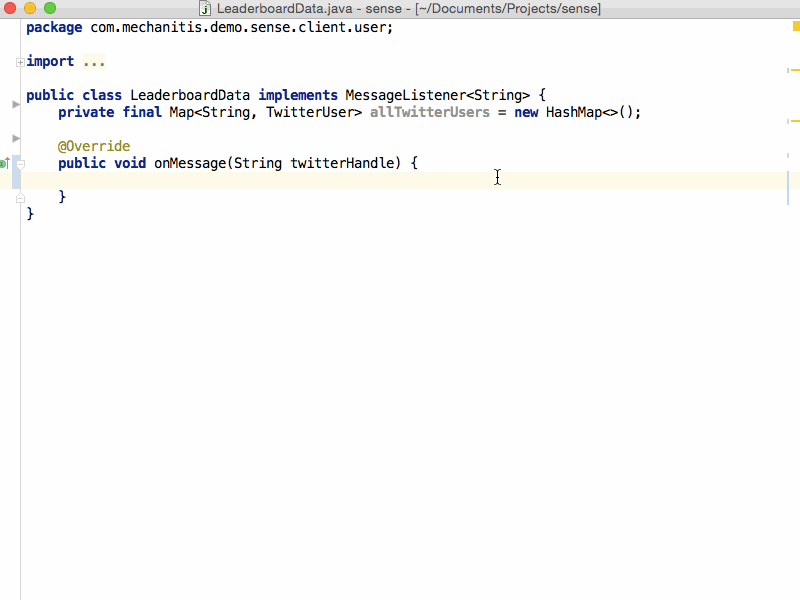The Sevilla Java User Group is working together towards completing the Java 8 MOOC on lambdas and streams. As part of this, we're running three sessions during the course so we can, as a group, ask questions about the lectures, get help with the homework, and (if we're feeling very smart!) help people who may be struggling (or might not have watched the videos).
Last night we had the first session which went really well. We had a small-ish group, about half of whom had completed the homework and the quiz (for the first lesson) and half had not. We worked through the homework exercises together, saw how there were multiple solutions for each problem, and explored how to balance conciseness with longer, more descriptive code.
First offline session for lesson 1 of the lambdas and streams mooc #java8 #40gradosAlaSombra pic.twitter.com/hJgPrLl3C5
— SVQ JUG (@SVQJUG) July 20, 2015
On the whole people thought the videos for the course were very clear and well-explained, although we also went through how to run the videos at 1.5 speed, as most people wanted to run through them faster! I thought the pace of the videos was especially good for those who aren't so comfortable with listening in English, and it's easy to add subtitles and speed it up if you feel comfortable with the material.
The first lesson covers lambdas, and their use in some of the new Java 8 methods (specifically on collections, but not streams).
The areas we discussed most, the ones that needed more clarity were:
- Functional Interfaces: what does Single Abstract Method (SAM) really mean? Also, we were interested in the "exception" of methods declared on
Objectas well as an interface (e.g.equals()), but we came to the conclusion that it was easier to simply think of looking for only one method without any form of implementation at all - methods defined onObjectmust have an implementation, sinceObjectis not an abstract class or interface. - Method References: we looked at examples of the three types that aren't constructor references, what they look like in lambda form and how they differ. Method references are... not difficult to understand, but do look a bit awkward in the code if you're not used to them, and can be confusing as all your types, parameters and return values disappear.
- Parallel execution: The first lesson talks a lot about how lambdas are here to make parallelisation and concurrency easier for developers, so obviously there was a question about how the code in the homework examples would be executed in a multi-CPU environment. I assumed (although I'm waiting for clarification) that methods like
removeIfare not parallelised, since in the case of Streams you have to explicitly state you want to go parallel. We also talked a bit about parallel() and parallelStream(), even though the lesson didn't cover Streams at all. We wanted to understand a bit more about the pros and cons of going parallel.
Of course, I also snuck in some demos of IntelliJ IDEA's awesomeness, including its magical support for creating lambdas and turning things into (and from) method references.

It was a great, collaborative session, with most people getting a chance to demonstrate their code (if they wanted to!). And at the end we had solutions to the five exercise problems and had discussed all the areas people wanted more clarity on.

